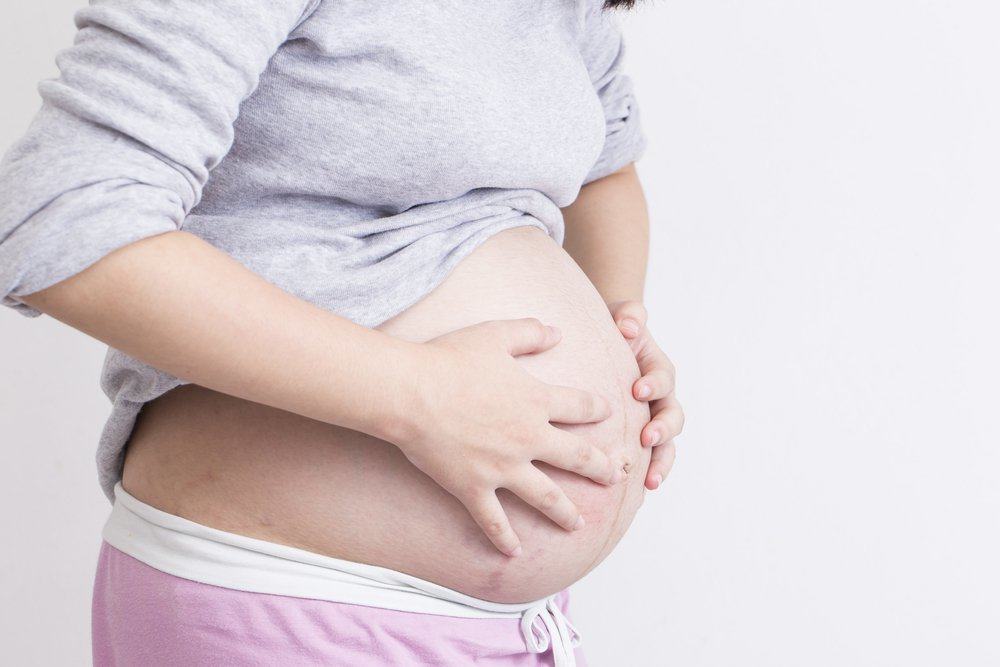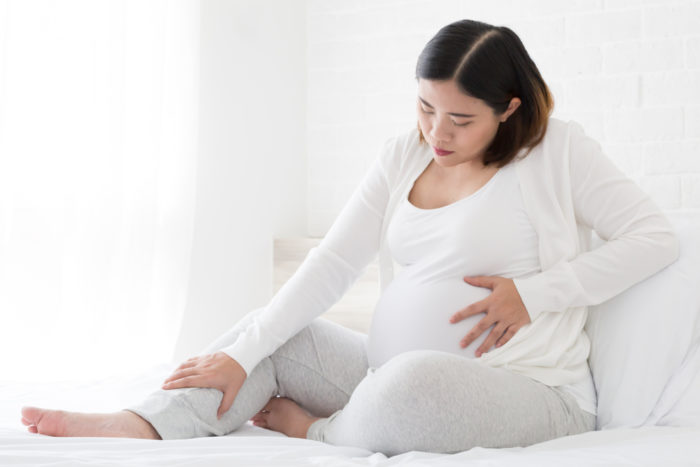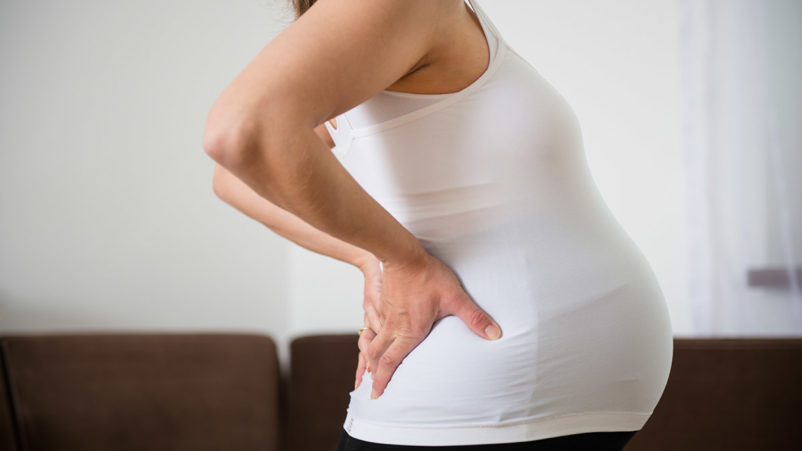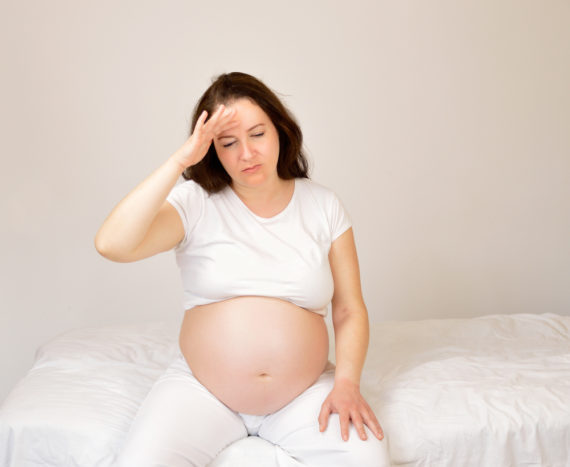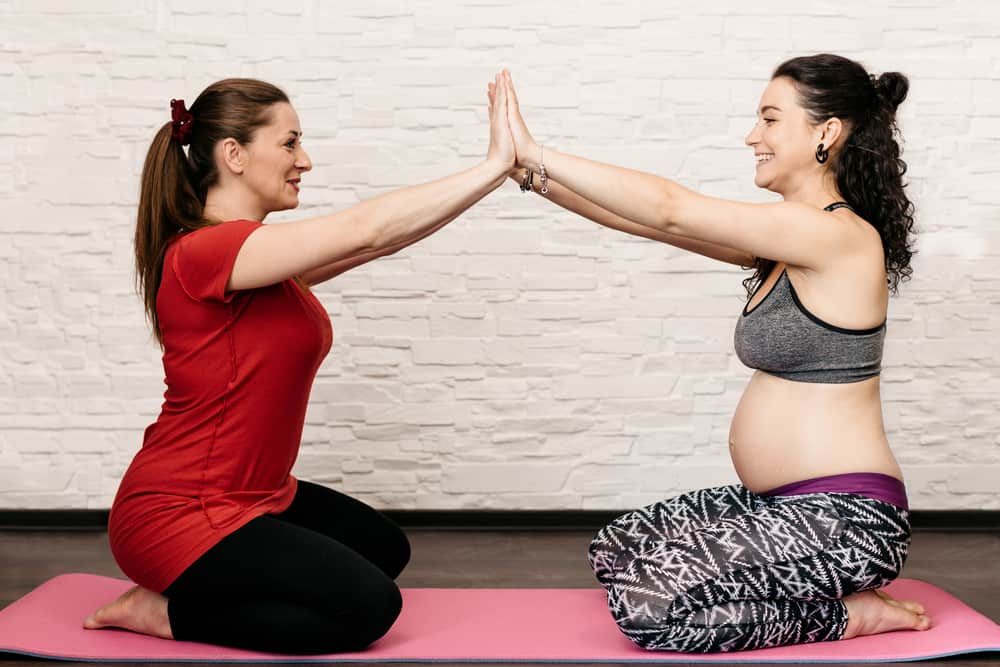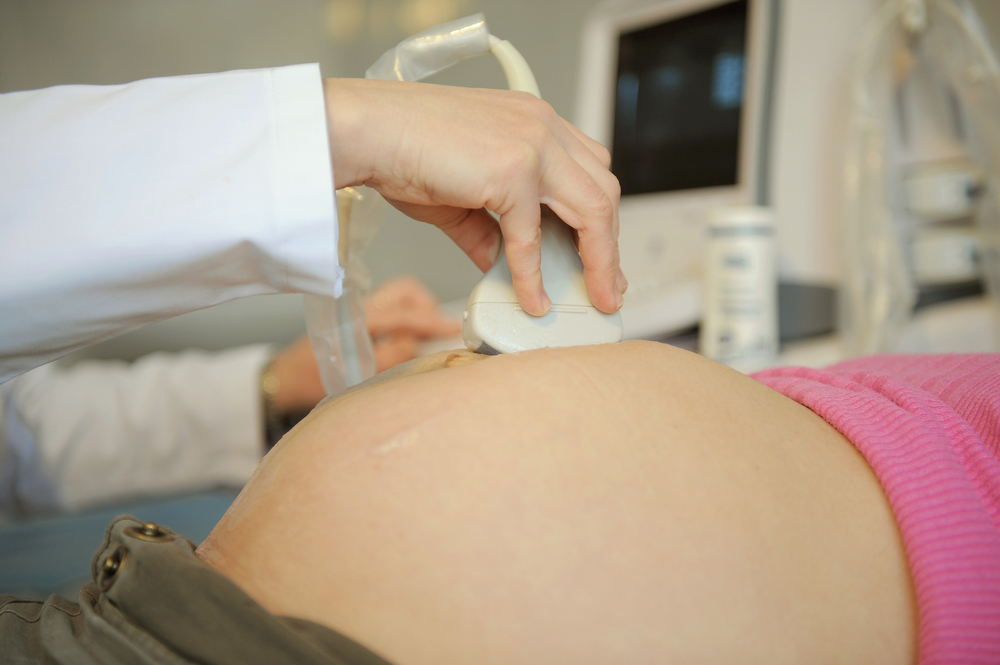Contents:
- Medical Video: HEALTH CARE – LIVER DISEASES IN PREGNANCY
- Various complaints of young pregnant women and their causes
- 1. Morning sickness
- 2. Constipation
- 3. Cramps
- 4. Swelling
- 5. Back pain
- 6. Headaches
- 7. Frequent urination
- 8. Leucorrhoea
- 9. Indigestion
- 10. Feel weak and want to faint
- Reducing discomfort during pregnancy with exercise for pregnant women
- Safe rules for doing pregnancy exercises
Medical Video: HEALTH CARE – LIVER DISEASES IN PREGNANCY
Pregnancy is a pleasant moment for women. However, some mothers complain of problems that make themselves uncomfortable during pregnancy, especially when they are young. This problem may be different in each woman and the time of occurrence may also be different. In fact, there are some women who may not experience this complaint at all. So, what are the things that are most often complained of when young women are pregnant? We try to summarize it in this article.
Various complaints of young pregnant women and their causes
The following are the most common complaints experienced by pregnant women and their causes.
1. Morning sickness
Young pregnant women experience the most morning sickness. Yes,morning sickness usually occurs in the first three months of pregnancy. This condition makes young pregnant women often feel like vomiting and nausea. As a result, pregnant women have difficulty eating. Although named morning sickness, but this condition does not always occur in the morning. Morning sickness caused by hormonal changes during pregnancy.
Several factors can cause morning sickness in pregnant women are:
- Increased levels of the hormone estrogen, usually occurs when a young woman is pregnant and can cause nausea and vomiting
- Increased levels of the hormone human chorionic gonadotrophin (Hcg), which is a hormone that begins to be produced after conception or fertilization
- Lack of nutrients, such as vitamin B6 deficiency
- Digestive problems, progesterone is a hormone that helps prepare and protect the uterus during pregnancy. Because the production of the hormone progesterone increases, the movement of the small intestine, esophagus and stomach decreases and causes nausea. This decrease in movement occurs because the muscle walls are relaxed.
While the risk factors that can trigger the occurrence morning sickness in pregnant women are:
- Nausea and vomiting before pregnancy
- Have a family history of nausea and vomiting or morning sickness during young pregnancy or pregnancy
- Have a history of motion sickness while traveling or driving
- Having a history of nausea when using contraceptives containing estrogen
- Obesity
- Stressful
- Twin pregnancy
- First pregnancy
2. Constipation
During pregnancy, you usually experience constipation, which is when bowel movements have difficulty removing feces. These complaints can be caused by hormonal changes, or can also be caused by your diet lacking fibrous foods. If constipation is not treated immediately, it can cause the development of hemorrhoids, aka hemorrhoids, which is the swelling of the blood vessels around the anus. Ambient is a problem that is most often complained of by pregnant women.
So that pregnant women do not experience constipation, here are some things you should do:
- Eat foods that contain high fiber, such as vegetables and fruit every day
- Drink plenty of water, at least 8 glasses of water every day
- Do regular exercise
- Avoid consuming iron supplements because they can cause constipation. You should consult your doctor first whether you need iron supplements during pregnancy or there are other ways.
3. Cramps
Foot cramps that usually occur at night may be a common complaint in some pregnant women during the second trimester. Cramps may be caused by an additional burden that the mother carries during pregnancy which makes the muscles tense.
To prevent cramping in pregnant women, you can do pregnancy exercises so that it can facilitate blood circulation and prevent cramps in the legs. You can try one of the pregnancy exercises to prevent cramping, which is to move your legs up and down 30 times. Then turn your feet 8 times alternately. This gesture of pregnancy exercises may prevent cramps in your legs if done regularly.
4. Swelling
Pregnant women also often experience swelling which generally occurs in the hands, feet, ankles and fingers. This is because your body contains more fluids during pregnancy. When the weather is hot or if you stand too much, body fluids will gather more in the lowest part of the body. Swelling can also be a sign that you have preeclampsia if it is followed by a headache, vision becomes blurred, pain in the lower ribs, and vomiting.
To prevent swelling during pregnancy, you should:
- Avoid standing for a long time
- Use comfortable and not too tight footwear
- Rest your feet at least one hour per day by placing your feet higher than your heart, you can prop your feet with a pillow when sitting or lying down
5. Back pain
During pregnancy, the ligament that connects the bone to the bone becomes softer and stretches to prepare the body for labor. Increased weight because the growth of the baby in the womb which is growing makes this burden placed on the joints of the back and pelvis causing back pain. To prevent back pain during pregnancy, pregnant women should:
- Avoid lifting heavy objects
- Bend your knees and keep your body upright when taking things from below or on the floor
- Movement of your feet when turning to avoid turning the spine
- Use flat footwear like flat shoes so that your weight is divided evenly on both legs
- Work on a table high enough to prevent you from bending
- Balance the weight of your bag when carrying a bag or carrying shopping
- Sit up straight
- Make sure you have enough time to rest
6. Headaches
Headache is one of the most common complaints in pregnant women. Headaches during pregnancy are often caused by hormones. It usually occurs when you are pregnant and will decrease in the last 6 months of pregnancy. Headaches during pregnancy will not hurt your baby, but make you uncomfortable.
Changes to your lifestyle can help prevent headaches. Make sure you always get enough rest and make your mind more calm and relaxed.
Try doing fun things that make you feel more comfortable. If the headache attacks, you should rest and if you want to take drugs to get rid of headaches, such as paracetamol and ibuprofen. Before taking these drugs, you should consult with your doctor first.
7. Frequent urination
Frequent urination usually occurs when you are pregnant, which is around the age of 12-14 weeks of pregnancy. After that, the frequency of urination usually returns to normal.
Furthermore, at the end of the pregnancy, the frequency of urination more often can be experienced by pregnant women. This is caused by the baby's head pressing on to your bladder.
However, that does not mean pregnant women should reduce fluid intake to prevent this from happening. Because, you and your baby still need a lot of fluids. So, what you can do is avoid drinks containing alcohol and caffeine.
If there is blood in your urine, you may have a urinary tract infection. It is best to drink plenty of fluids to melt your urine and to get rid of the pain and immediately see a doctor.
8. Leucorrhoea
Leucorrhoea can occur during pregnancy and almost all pregnant women experience this. Leucorrhoea increases during pregnancy because it protects the vagina and uterus from infection. During pregnancy, the cervix or cervix and vaginal walls become softer.
Towards the end of pregnancy, the amount of vaginal discharge continues to increase and the texture is thicker and may have blood spots. This is a sign that the body has started preparing for your baby's birth.
However, to anticipate the occurrence of something that is not desirable, you should tell your doctor if there are unusual changes from your vaginal discharge, such as changes in color and odor, or you experience pain around the vagina.
9. Indigestion
General digestive disorders are experienced by pregnant women. Indigestion or known as dyspepsia is caused by hormonal changes, and at the end of pregnancy is also caused by the uterus that continues to grow so that it compresses your stomach.
These changes often cause acid reflux, where stomach acid rises from the stomach to the esophagus and irritates the lining of the esophagus, producingheartburn aka the feeling of heat in the upper abdomen.
Symptoms of digestive disorders usually arise after you eat, such as feeling full, nauseous, and belching. This digestive disorder may be reduced by changing lifestyles, such as eating small but frequent meals. If you want to take drugs, such as antacids, to relieve this pain, you should consult your doctor first.
10. Feel weak and want to faint
Pregnant women often feel weak and this is caused by hormonal changes during pregnancy, especially during young pregnancy. Fainting can occur when the brain does not get enough blood flow so the brain experiences a lack of oxygen.
Vision You may run away from a sitting position or sleeping position too fast. There are several things that pregnant women can do to prevent fainting, including:
- Get up slowly after you sit or lie down
- If you feel you want to faint while standing, you should sit back or lie down again
- If you feel you want to faint while lying down, you should replace your lying side
Reducing discomfort during pregnancy with exercise for pregnant women
Young pregnancy does not mean you have to stop exercising. Depending on your condition, actually exercise is highly recommended during pregnancy because it can bring many benefits to you and your fetus.
Pregnant exercise is a sport that is relatively safe for pregnant women. Pregnant exercise is safe at various gestational ages. You can do gymnastics for pregnant women at home or in gymnastics classes.
If you do pregnancy exercises at home, you will certainly feel more comfortable. In addition, pregnancy exercises at home can be done anytime so it can save you time.
However, before doing pregnancy exercises at home, make sure you have consulted with a doctor about the movements of pregnant women who may or may not do it. It would be better if you call a certified and experienced pregnancy gymnastics trainer to your home.
While if you do pregnancy exercises in a pregnant class, you will certainly get the right fitness and guidance. You also can interact with other pregnant women so that you can increase your knowledge and share your experiences with others.
The main benefits of pregnancy exercise are to increase the health and fitness of pregnant women and their fetuses. In addition, pregnant women can help flex and strengthen the muscles needed during labor later so that it will facilitate the delivery process. Other benefits of regular exercise for pregnant women are:
- Relieves pain and pain that is felt during pregnancy.
- Tighten muscles.
- Strengthens the heart and lungs.
- Makes you sleep better.
- Helps avoid excessive weight gain.
- Relieve pain due to increased burden on the spine.
- Strengthen joints.
Psychologically, pregnancy exercises make you think more positively because you feel better prepared for labor. In addition, after the baby is born, this exercise also helps you immediately be able to return to your original body shape and stamina.
Safe rules for doing pregnancy exercises
Before doing pregnancy exercises, you should always consult your obstetrician first. The body of each pregnant woman is different. So, consider all the benefits and risks that exist before you do this one activity.
Here are some things that you should pay attention to before doing maternity exercises:
- Get enough exercise for at least 30 minutes a day.
- Wear special sports clothing for pregnant women who are loose and comfortable.
- Drink water before, during and after exercise. Water prevents dehydration and lack of oxygen.
- Increase your strength by focusing on your back, shoulders, chest and biceps so that you remain strong to lift and hold the baby as often as you need.
- Don't forget to try Kegel gymnastics. This exercise trains the pelvic muscles. Important pelvic floor exercises during pregnancy. Because it can keep your entire pelvic area strong and help prevent possible urinary incontinence problems after you give birth.
In addition to exercise for pregnant women, you can also do other sports. As suggested by the American Pregnancy Association, choose the right exercise during pregnancy. There are many sports that are safe for pregnant women to do, but do not overdo it and must be careful. An example of good exercise for pregnant women is prenatal yoga, where the risk that can be caused is very low.
If you are used to doing exercise before becoming pregnant, you may be able to continue it during your pregnancy. But, adjust also to your ability when pregnant. Do not do high-risk sports, such as the risk of falling, there is a jump movement, carried out in hot weather, and so on.

